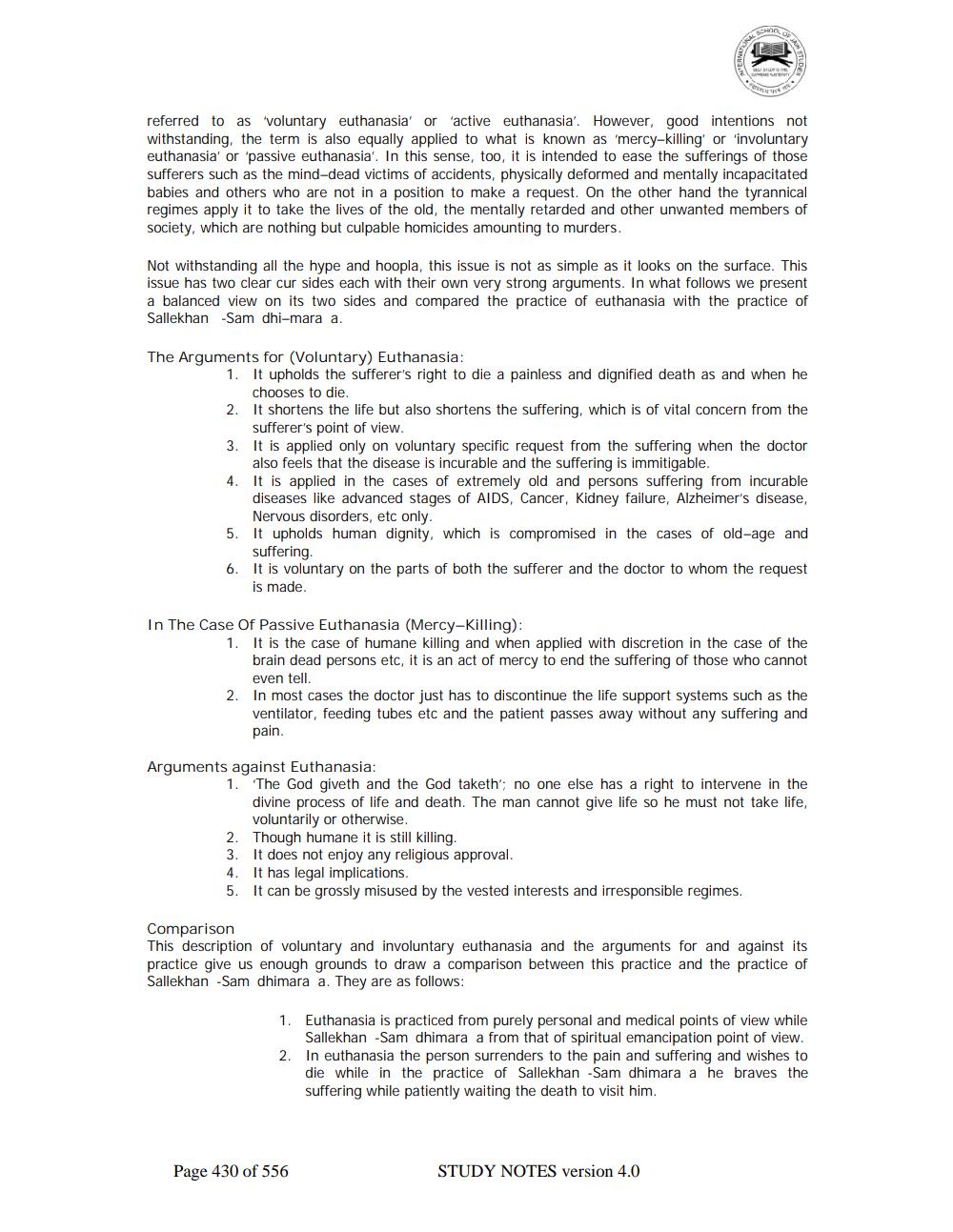________________
referred to as "voluntary euthanasia' or 'active euthanasia'. However, good intentions not withstanding, the term is also equally applied to what is known as 'mercy-killing' or 'involuntary euthanasia' or 'assive euthanasia'. In this sense, too, it is intended to ease the sufferings of those sufferers such as the mind-dead victims of accidents, physically deformed and mentally incapacitated babies and others who are not in a position to make a request. On the other hand the tyrannical regimes apply it to take the lives of the old, the mentally retarded and other unwanted members of society, which are nothing but culpable homicides amounting to murders.
Not withstanding all the hype and hoopla, this issue is not as simple as it looks on the surface. This issue has two clear cur sides each with their own very strong arguments. In what follows we present a balanced view on its two sides and compared the practice of euthanasia with the practice of Sallekhan Sam dhi-mara a.
The Arguments for (Voluntary) Euthanasia:
1. It upholds the sufferer's right to die a painless and dignified death as and when he
chooses to die. 2. It shortens the life but also shortens the suffering, which is of vital concern from the
sufferer's point of view. 3. It is applied only on voluntary specific request from the suffering when the doctor
also feels that the disease is incurable and the suffering is immitigable. 4. It is applied in the cases of extremely old and persons suffering from incurable
diseases like advanced stages of AIDS, Cancer, Kidney failure, Alzheimer's disease,
Nervous disorders, etc only. 5. It upholds human dignity, which is compromised in the cases of old-age and
suffering. 6. It is voluntary on the parts of both the sufferer and the doctor to whom the request
is made.
In The Case Of Passive Euthanasia (Mercy-Killing):
1. It is the case of humane killing and when applied with discretion in the case of the
brain dead persons etc, it is an act of mercy to end the suffering of those who cannot even tell. In most cases the doctor just has to discontinue the life support systems such as the ventilator, feeding tubes etc and the patient passes away without any suffering and pain.
Arguments against Euthanasia:
1. The God giveth and the God taketh'; no one else has a right to intervene in the
divine process of life and death. The man cannot give life so he must not take life,
voluntarily or otherwise. 2. Though humane it is still killing. 3. It does not enjoy any religious approval. 4. It has legal implications. 5. It can be grossly misused by the vested interests and irresponsible regimes.
Comparison This description of voluntary and involuntary euthanasia and the arguments for and against its practice give us enough grounds to draw a comparison between this practice and the practice of Sallekhan -Sam dhimara a. They are as follows:
1. Euthanasia is practiced from purely personal and medical points of view while
Sallekhan Sam dhimara a from that of spiritual emancipation point of view. 2. In euthanasia the person surrenders to the pain and suffering and wishes to
die while in the practice of Sallekhan -Sam dhimara a he braves the suffering while patiently waiting the death to visit him.
Page 430 of 556
STUDY NOTES version 4.0




